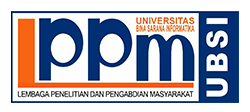PENGARUH PENGEMBANGAN EKOWISATA DI DESA WISATA LEMPUR KABUPATEN KERINCI PROVINSI JAMBI
Sari
ABSTRAK
Masyarakat Desa Wisata Lempur telah memfungsikan Lembaga Adat Lekuk 50 Tumbi Lempur sebagai penanggung jawab utama kegiatan wisata di Lempur dan wilayah sekitarnya. Seiring berjalannya waktu, pengembangan ekowisata diharapkan memberikan perubahan bagi masyarakat pada aspek ekologi, ekonomi dan sosial. Setelah ditetapkannya Lekuk 50 Tumbi Lempur sebagai Desa Wisata pada tahun 2016, terjadi beberapa perubahan namun belum diketahui apakah hal tersebut disebabkan oleh kegiatan ekowisata yang dilakukan di desa. Penelitian ini secara khusus mengkaji pengaruh pengembangan ekowisata terhadap perubahan kondisi ekologi, ekonomi dan sosial setelah 5 tahun perjalanan pengelolaan ekowisata di Desa Wisata Lempur, Kabupaten Kerinci. Metode penelitian ini adalah metode penelitian kuantitatif. Responden diambil sebanyak 30 orang secara purposif kemudian dilanjukan dengan uji normalitas Shapiro-Wilk dan uji hipotesis dengan Uji T. Hasil penelitian ini menyatakan bahwa terdapat pengaruh yang signifikan terhadap perubahan kondisi ekologi, ekonomi dan sosial sebelum dan setelah adanya pengembangan ekowisata berbasis masyarakat di Desa Wisata Lempur. Hal ini berdasarkan hasil wawancara dan kuisioner yang kemudian diuji lanjut dengan uji t. Dapat disimpulkan bahwa kegiatan ekowisata yang dilakukan membawa perubahan terhadap aspek ekologi, ekonomi dan sosial di Desa Wisata Lempur.
Kata Kunci: Desa Wisata Lempur, Ekowisata, Lekuk 50 Tumbi, Masyarakat, Perubahan
ABSTRACT
The community of Lempur Tourism Village has enabled the Lekuk 50 Tumbi Lempur Traditional Institute as the main person in charge of tourism activities in Lempur and the surrounding area. Over time, the development of ecotourism is expected to provide changes for the community in ecological, economic and social aspects. After the stipulation of Lekuk 50 Tumbi Lempur as a Tourism Village in 2016, there have been some changes but it is not known whether this is caused by ecotourism activities carried out in the village. This study specifically examines the effect of ecotourism development on changes in ecological, economic and social conditions after 5 years of ecotourism management in Lempur Tourism Village, Kerinci Regency. This research method is a quantitative research method. Respondents were taken as many as 30 people purposively then continued with the Shapiro-Wilk normality test and hypothesis testing with the T test. The results of this study stated that there was a significant effect on changes in ecological, economic and social conditions before and after the development of community-based ecotourism in the Tourism Village. mud. This is based on the results of interviews and questionnaires which are then further tested with the t test. It can be concluded that the ecotourism activities carried out bring changes to the ecological, economic and social aspects of the Lempur Tourism Village.
Keywords: Changes, Community, Ecotourism, Lempur Tourism Village, Lekuk 50 Tumbi
Kata Kunci
Teks Lengkap:
PDFReferensi
Avenzora, R. 2013. Ekowisata – Teori dan Implikasi. Di Dalam Darusman D dan Ricky Avenzora, editor. 2013. Pembangunan Ekowisata Pada Kawasan Hutan Produksi: Potensi dan Pemikiran. Bogor (ID). Program Studi Pasca Sarjana Manajemen Ekowisata Dan Jasa Lingkungan IPB.
Boo, E. 1990. Ecotourism: the Potensials and Pitfalls. WWF America Serikat (US): Washington DC.
Cahyadi, H. S. (2016). Kajian SDM Dalam Pengelolaan Usaha Dan Jasa Pariwisata Di Desa Lekuk 50 Tumbi Lempur Kec. Gunung Raya, Prov. Jambi.
Ceballos-Lascurain, H. 1996. Tourism, ecotourism, and protected area. IV World Congress on national park and protected areas. Cambridge (UK): IUCN Publication Services Unit
Damanik, J & Weber, H.F. 2006. Perencanaan ekowisata: Dari teori ke aplikasi. Yogyakarta (ID): Penerbit Andi.
Firman Syah. 2017. Strategi mengembangkan desa wisata. Prosiding seminar nasional multi disiplin ilmu & call for papers unisbank ke-3(sendi_u 3). Semarang. UNISBANK
Ghozali, I. (2013). Aplikasi Analisis multivariate dengan program IBM SPSS 21. Semarang: Badan Penerbit Universitas Diponegoro.
Hermawan, H. (2016). Dampak pengembangan Desa Wisata Nglanggeran terhadap ekonomi masyarakat lokal. Jurnal Pariwisata, 3(2),105-117.
Inskeep, E. (1995). Tourism Planning An Integrated and Sustainable Development Approach. New York: Van Nostrand Reinhold, New York.
Libosada Jr, C.M. 1998. Ecotourism in The Philippines. Philippines: Geba Printing.
Mearns, K. F. (2011). Using sustainable tourism indicators to measure the sustainability of a community-based ecotourism venture :Malealea Lodge & Pony Trek Centre, Lesotho. Tourism Review International,15(1-2),135-147.
Medlik,,S. 2003. Dictionary of Travel, Tourism and Hospitality. Great Britain (GB): Butterworth-Heinemann.
Newsome, D. and Hughes, M. (2016) Understanding the impacts of ecotourism on biodiversity: a multiscale, cumulative issue influenced by perceptions and politics. In: Geneletti, D., (ed.) Handbook on biodiversity and ecosystem services in impact assessment. Edward Elgar, Cheltenham, UK.
Purwanggono, D. (2009). Konsep Desa Wisata . Jurnal Pariwisata Indonesia, 4(2), 13–20.
Republik Indonesia (RI). 2009. Undang-Undang No. 10 Tahun Tentang Kepariwisataan.
Rini, D. S., & Faisal, F. (2015). Perbandingan Power of Test dari Uji Normalitas Metode Bayesin, Uji Shapiro-Wilk, Uji Cramer-Vonmises, dan Uji Anderson-Darling. GRADIEN: jurnal ilmiah MIPA,11(2),1101-1105.
Soemarno & Handayani, H. S. (2011). Desa Wisata. Malang: PPSUB Program Pascasarjana, Universitas Brawijaya.
Sugiama, A.G.S. 2011. Developing models of agri-tourism based on tourismquality components that influence tourist satisfaction and loyalty (case of service in Bandung). Prosiding ISSIT. Yogyakarta
Syafri,M & Albayudi. (2020). Analisis potensi dan strategi pengelolaan ekowisata di Kawasan Hulu Air Lempur Kabupaten Kerinci Jambi. Jurnal Ilmu Manajemen Terapan,1(4),360-371.
DOI: https://doi.org/10.31294/par.v11i1.12498










